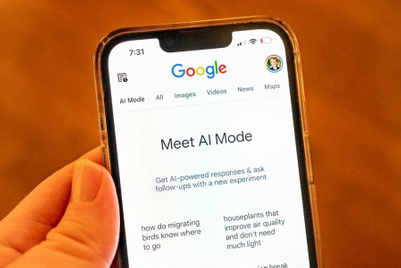.jpg&h=570&w=855&q=100&v=20250320&c=1)
It’s no secret in the industry that Google has dedicated a great deal of resources into machine learning, with the long-term vision of turning Google Ads into a fully self-serve platform without agencies or in-house specialists in the picture.
In the past year alone, Google has rolled out Smart Shopping and Smart Display, both of which are completely automated campaign types that require minimal manual optimisation and automatically optimise towards a user-defined target.
The only snag is that advertisers require a successful display or shopping campaign for Google’s machine learning to learn from, making it an apparent auto-optimising campaign as opposed to a fully self-serve campaign type.
Nevertheless, it is a great leap forward from Google’s previous focus on simply automating bidding, with the company starting to focus on automating some of the actual optimisation work that an agency or in-house marketer would do on a day-to-day basis.
Despite this appearing to be a damning blow for agencies that could result in lost management fees and additional spend on Google, it probably won’t. It’s more likely to simply move the role of the agency.
Because if everyone is using Google’s machine-learning algorithms, the only way to compete is to focus on areas that Google doesn’t automate.
Instead of being paid management fees for building and optimising Google Ads campaigns, agencies are likely to focus on optimising advertisers' shopping feeds and websites to convert better so that they can compete more effectively in Google's shopping algorithm. This is similar to how an SEO agency would operate.
Google’s latest close-match variant changes, rolled out in September, appear to be an area where its automation—designed to make the platform more self-service while helping brands appear for more searchers—could the agency more valuable.
When you defined an exact-match keyword such as "Campaign magazine", your ads would only appear when users typed in exactly "Campaign magazine". However, advertisers can now appear for "same meaning" variations, such as "Campaign booklet"—two terms that have very different meanings and will have very different performance.
When comparing the performance between the keywords that we defined and the keywords that Google choose on our behalf, the difference was fairly staggering. In one example, the keywords Google chose generated leads at as much as a 80% higher cost.
Agencies must reverse these changes by building technology that will go through and exclude variants and reduce the cost per acquisition of the advertisers that they represent.
Google’s attempts to remove the agency or in-house pay-per-click practitioner from the picture appear to have so far been unsuccessful. In fact, they show that the value of the agency has increased.
The underlying problem doesn’t seem to be Google’s lack of ability to build technology to improve advertisers' performance; when reviewing the performance of its automated bidding, in most cases it is very good.
The biggest issue seems to be the conflict of interest in some cases between Google’s goals and that of the advertisers that use its platform—and where the agency or in-house marketer can be valuable to address this imbalance.
Google has an obligation to its shareholders to keep growing profit and maximising the value of the average 3.5 billion searches per day, and this can be achieved in two ways: charging people more per click or showing ads in more searches.
If advertisers are looking to grow their spend, traffic and conversion volume, their goals and Google’s are aligned. However, if their goals are to maximise the number of sales they generate from a fixed budget, the role of the agency or in-house marketer will be crucial in order to minimise the effect of changes by Google that do not align with these goals.
Wesley Parker is managing director of Clicteq, a London-based PPC (pay per click) agency.


.jpg&h=334&w=500&q=100&v=20250320&c=1)
.jpg&h=334&w=500&q=100&v=20250320&c=1)
.jpg&h=334&w=500&q=100&v=20250320&c=1)



.png&h=334&w=500&q=100&v=20250320&c=1)

.png&h=334&w=500&q=100&v=20250320&c=1)

.jpg&h=268&w=401&q=100&v=20250320&c=1)






